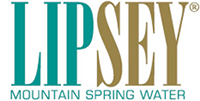
When you go to the dentist, you might get a fluoride treatment to help strengthen tooth enamel and prevent decay. People at a higher risk for cavities and tooth decay can benefit from additional fluoride protection, especially among adults. But did you know fluoride can also be found in your drinking water? In fact, in the 1940s, local water operators began to increase the amount of fluoride naturally found in local water sources to help prevent tooth decay. While some fluoride naturally occurs in water, adding fluoride to drinking water may have both positive and negative health effects. Fluoride does occur naturally in water sources, soil, and even the air. So how do you know if your water has added fluoride? And is it safe for you and your family to drink? It helps to get a better understanding of what fluoride is, the water fluoridation process, and all your options for safe drinking water.
What Is Fluoride?
Fluoride is a naturally occurring mineral found in water, soil, plants, and air. You also have fluoride minerals in your bones and teeth. Simply put, fluoride helps prevent cavities and is used in products like toothpaste and mouth rinses. Children benefit from regular trips to the dentist and appropriate small amounts of fluoride to support teeth and bone growth. Fluorides get absorbed into the bloodstream through the digestive tract and then collect in areas with high calcium, like bones and teeth. In addition to drinking water, fluoride can be found in both plant and animal food sources. Too little fluoride in drinking water can make children and adults more susceptible to tooth decay, while too much exposure to fluoride can make adults more susceptible to broken bones or fractures.
Fluoride in Drinking Water
You might be wondering why fluoride gets added to drinking water at all. The process of adding fluoride to drinking water is known as water fluoridation. This process was designed to ensure the population experienced the benefits of fluoride to help reduce tooth decay in the general public while also reducing the strain on the healthcare system. Here’s what you need to know about the water fluoridation process and how it’s regulated:
Water Fluoridation Process
Natural amounts of fluoride are commonly found in water sources, though the amounts can vary. In areas where there are fewer amounts of fluoride in groundwater or natural springs, municipalities may use a process called water fluoridation to maintain healthy levels of fluoride in the water system. This means the water you drink provides you with frequent and consistent exposure to this mineral that helps prevent tooth decay.
Regulating Fluoride in Drinking Water
Your community will have regulation standards for fluoride in your local drinking water. States are not required to utilize water fluoridation in their drinking water sources, but the levels are monitored by several government agencies, including the US Public Health Services (PHS) and the US Environmental Protection Agency (EPA). The Centers for Disease Control and Prevention (CDC) also provides agencies and the public with recommendations and optimal levels of fluoride in public drinking water. The US Food and Drug Administration also sets the fluoride level standards for bottled water.
How to Know the Fluoride Levels in Your Drinking Water
Each city makes a determination on whether to utilize water fluoridation for local drinking water. You can find out whether your local supply is fluoridated as a public health measure by visiting your local city or state’s website. If your city does add fluoride to the public drinking water, it should also list how much they add. Your local water system should have safeguards in place to regulate and monitor the amount of fluoride that goes into the water. In some cities, naturally occurring levels of fluoride are higher than the recommendation, so public water systems take appropriate steps to reduce the amount in the water. If you live in a city that doesn’t fluoridate its water sources, then you may want to look into other ways of ensuring you get appropriate amounts of fluoride to keep your bones and teeth healthy.
Does Bottled Water Contain Fluoride?
Every bottled water company is different, and some bottled water contains only trace amounts of fluoride or no fluoride at all. If a bottled water product says it is de-ionized, purified, or distilled, then the water has been treated to remove some naturally occurring minerals like fluoride. However, bottled water labeled as spring water may contain fluoride as it naturally occurs at the bottled water source. At Lipsey Water, we offer clean and great-tasting water with fresh mountain spring water as our source. We utilize a minimal filtration process that removes fine particles but leaves beneficial and naturally occurring minerals intact. Our water never gets treated with chemicals or preservatives that would damage the natural quality of our fresh Blue Ridge Mountains spring water.
If you want to skip the tap water and drink water from a source you can trust, then consider Lipsey Water’s premium water delivery service in Atlanta, GA. We offer water delivery for both residential and commercial locations. We skip the plastic and store your fresh mountain water in glass bottles to keep the flavor fresh and crisp. Our glass bottles undergo heat sterilization between uses, which allows for a much longer shelf life and means we don’t rely on any harmful chemicals. Visit Lipsey Water to learn more about your options for water delivery service in Atlanta and enjoy the best fresh mountain spring water in the city!
